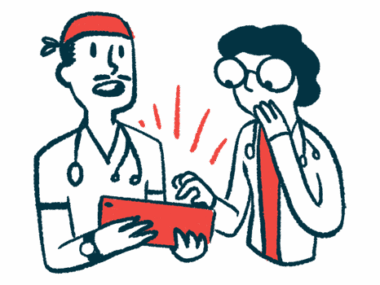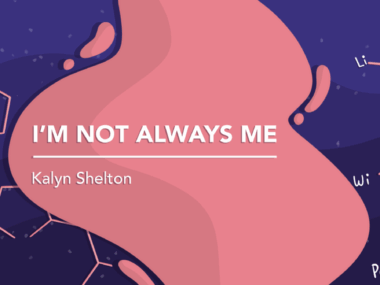My Fiancé Is My Caregiver: Making Romance Work With Rare Disease
Written by |

When my fiancé, Michael, first asked me out, he never expected to one day be my caregiver.
In honor of Valentine’s Day, I dedicate this column to him.
Michael is a rock, a support beam holding me up, keeping me steady despite anything acute hepatic porphyria throws my way.
But four years ago, I was undiagnosed and we were dating. We barely knew each other that day in the emergency room, yet he made the decision to stand by me.
***
The pressure in my abdomen had been building for weeks, like glowing charcoal gaining strength and threatening to ignite. At that point, the pain was an old friend, but it had grown over the last 12 hours, until it was no longer a comforting, crackling hum. It was a wildfire burning out of control, provoking intense fear. While the rest of the world prepared for bed, I managed to drive myself to the emergency room and collapse.
Off my feet, it seemed surreal to be back in an intake bed again, so recently after a week-long hospital stay had left me feeling devalued and dismissed by doctors. Full of shame and obligation, I dialed my new boyfriend’s phone number. The signal immediately traveled 40 miles away, unencumbered by my self-doubt, to reach Michael during a team retreat for work. My heart filled with warm comfort minutes later, knowing he would soon be a warm presence by my bedside.
I missed his text when he arrived, because a woman in a long white coat told me I was being admitted. My face was wet with tears when Michael entered the double doors to search for my room. I was wiping my cheeks when he approached my bed, concern twisting his features. I didn’t know when I was going home. I had a pork roast thawing on my counter.
The IV pain medications made it easier for me to breathe, so I was prepared for the nurse holding up my X-ray results.
“Your colon is completely full of stool.”
She assumed Michael was my husband. My mind processed her quizzical look, and I realized I was stifling a smile. Did I want to laugh because I already knew this was what was happening inside my body, because it was the same story every time my pain was medically investigated? Or did I want to laugh because my boyfriend of two months was sitting next to me, currently deciding if he was in or out?
It’s hard to describe that fluttering fear of literally showing your tender insides to the person you want acceptance from most, the person who cradled my delicate heart and didn’t know it. This was the defining moment of our relationship, the situation that pushed him rapidly up to and across the line. I could no longer hide my symptoms behind a smile, all I could do was hope they didn’t chase him away.
Out of options, I let out some weak laughter and Michael turned his face toward mine, tight with concern and confusion. Undoubtedly, he was trying to understand why I would be admitted for constipation. My intestines had stopped working days before; I had paralytic ileus.
As nighttime gave way to morning, I grasped at drug-induced sleep. Hours later, I woke to a dimly lit room, alone but for beeping machines. Yet, I knew Michael hadn’t left completely. It was a new day, and even a porphyria attack couldn’t choke out my feelings of promise. For the first time in my life, I felt the brightness of hope that I wouldn’t have to manage the wildfires alone.
It was months before my ailment had a name. Traversing that bumpy road, Michael could have gotten out of the car at any point. Because he didn’t, we built a strong foundation of trust. Now, we are engaged.
Years later, we prioritize communication. It sounds silly, but during these pandemic weekdays, we spend so much time together I assume he knows how I’m feeling and where I’m at on a pain scale at all times. This is clearly not the case. Unless I let him in on its severity, my resentment will build.
Similarly, I’ve learned to tell him directly what I need when my body is ablaze. It’s important I process feelings of guilt that arise from watching him leave with the dog or prepare dinner for the boys.
Until Michael, my health was a secret best kept close to my heart, for fear of ultimate rejection — one that had nothing to do with my personality or values. I took an enormous risk by calling him that night, but it gave him a chance to show up.
***
Note: Porphyria News is strictly a news and information website about the disease. It does not provide medical advice, diagnosis, or treatment. This content is not intended to be a substitute for professional medical advice, diagnosis, or treatment. Always seek the advice of your physician or other qualified health provider with any questions you may have regarding a medical condition. Never disregard professional medical advice or delay in seeking it because of something you have read on this website. The opinions expressed in this column are not those of Porphyria News or its parent company, Bionews, and are intended to spark discussion about issues pertaining to porphyria.





Leave a comment
Fill in the required fields to post. Your email address will not be published.